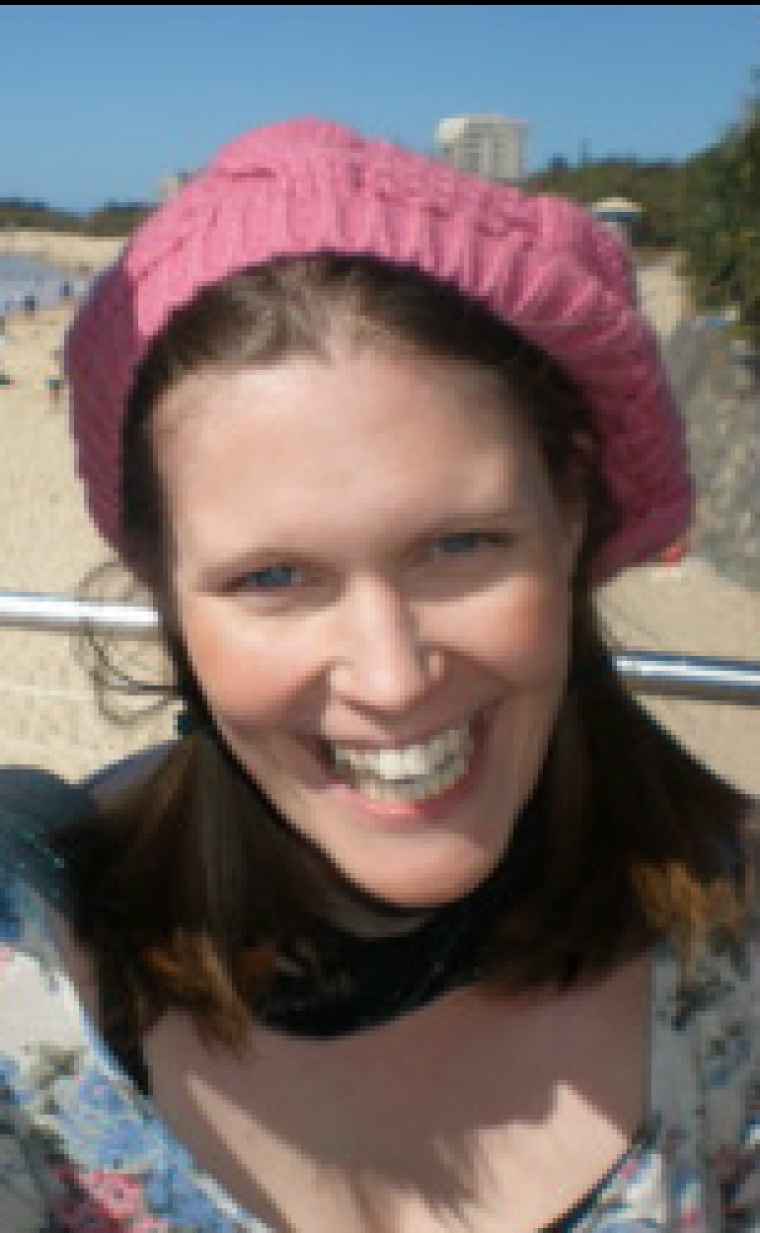
After Jesus was born in Bethlehem in Judea, during the time of King Herod, Magi from the east came to Jerusalem and asked, "Where is the one who has been born king of the Jews?"
Christmas. It's almost here again.
My husband has gone off into the Gold Coast hinterland and come home with a leafless, dead tree. He's placed it into a pot, painted it purple and adorned it with decorations he and my daughter made out of toilet paper rolls.
I like our Christmas tree. But to be honest, I've never liked Christmas much.
Christmas worried me when I was a child. I worried I'd grow greedy and superficial because of all the gifts I received. I worried I'd eat too much food and get fat. I even worried Christmas would end and I'd feel sad.
I stopped worrying the Christmas when I was engaged. My then fiancé and I decided to go for a midnight run. It was foggy and cold from a random Melbourne summer chill. We both got stitches. But it was fun running through a deserted city lit up with colourful Christmas lights; it was romantic.
The following Christmas my baby son was dying. The Christmas after that was the first Christmas without my son. And this Christmas is the first since my second son died. I don't like Christmas much.
A different reflection
"We saw his star when it rose and have come to worship him." When King Herod heard this he was disturbed, and all Jerusalem with him.
Christmas has a way of taking over every activity we do. My toddler and I go to Mainly Music at an Anglican church and we've been singing Jingle Bells and Away in a Manger every week since mid-November. The leading lady always yells in between the songs, "Jesus, remember baby Jesus when you open your presents!"
Jesus, remember Jesus…
I consider her bold because most people at this Mainly Music group would probably identify themselves as secular. And there isn't a Jesus in the secular Christmas.
But really I don't think there's a lot of difference between a secular and Christian Christmas. Secular Christmas has consumerism and Santa. Christian Christmas has the mind boggling narrative of a virgin birth with wise men and talking angels. But both have rich themes of hope, joy, love, peace and unusual generosity.
Maybe that is why the Christmas season can be hard for both the devout religious and non-religious. Christmas is a time when 'abundance rejoices and when want is keenly felt', wrote Charles Dickens in A Christmas Carol.
A reality reflection
When he had called together all the people's chief priests and teachers of the law, he asked them where the Messiah was to be born.
"You better get Christmas right," my Dad joked one year when I was working for a church.
How could I get Christmas wrong?
Charles Dickens, who after all was 'The Man Who Invented Christmas' (according to the London Sunday Telegraph), thought people often got Christmas wrong. And he particularly criticised Christians for focusing too much on the spiritual side of Christmas.
I think he has a point.
I've found it easy to spiritualise Christmas. After all, the big theological themes of Christmas are the incarnation and salvation. And so my focus at Christmas has been worshipping the sacred. Christmas was a very spiritual occasion, a spiritual occasion that had very little to do with the physical reality of life.
A theology reflection
"In Bethlehem in Judea," they replied, "for this is what the prophet has written."
I'm learning a Christian theology of Christmas is also about physically going somewhere. It's a journey more reminiscent of Santa's mythical voyage around the world than the non-movement, fixedness of sitting on a pew at church.
Many great religious teachers talk about going somewhere during holy celebrations. I think the destination is usually similar. For the Christian at Christmas it is going to Jesus.
Going to Jesus this Christmas means I must walk the dusty road to Bethlehem. I must go to an obscure town. A town where a poor, refugee women, suffering from the after pains of childbirth, sits holding a helpless baby named Jesus. (And of course, Christmas is just the beginning of the journey. The journey continues on to the wedding in Cana, the well with the Samaritan women, the cross at Golgotha and eventually the empty tomb).
It's the great paradox of many religions; Christmas hope, love, peace and joy are all found by going to the vulnerable, sick, grieving and weak. They are found in emptiness and aloneness; by descending rather than ascending; by leaving behind the systems of culture and economics. Amongst John who is alone in hospital and Amy who is a drunk. They are found in my own grief. And most significantly in Bethlehem, Judea.
I guess it's a Christmas challenge to those who are content. And a comfort to the hurting.
The Bible story paraphrased from the Gospel of Matthew.
Danielle Stott lives on the Gold Coast. She has a degree in Theology and is now studying again. She is married and has a two year old daughter and two sons who live in heaven.
Danielle's archive of articles can be viewed at www.pressserviceinternational.org/danielle-stott.html